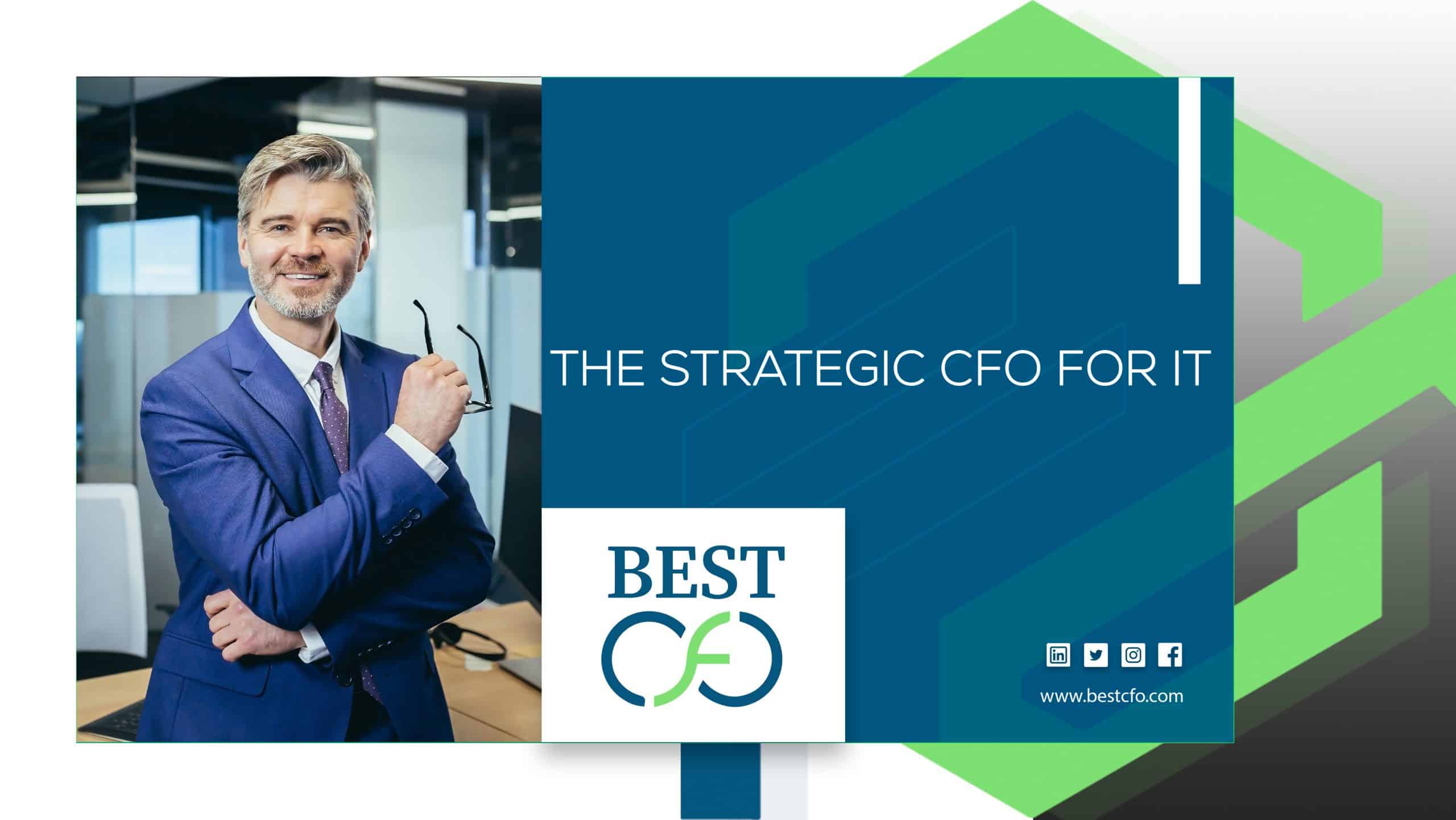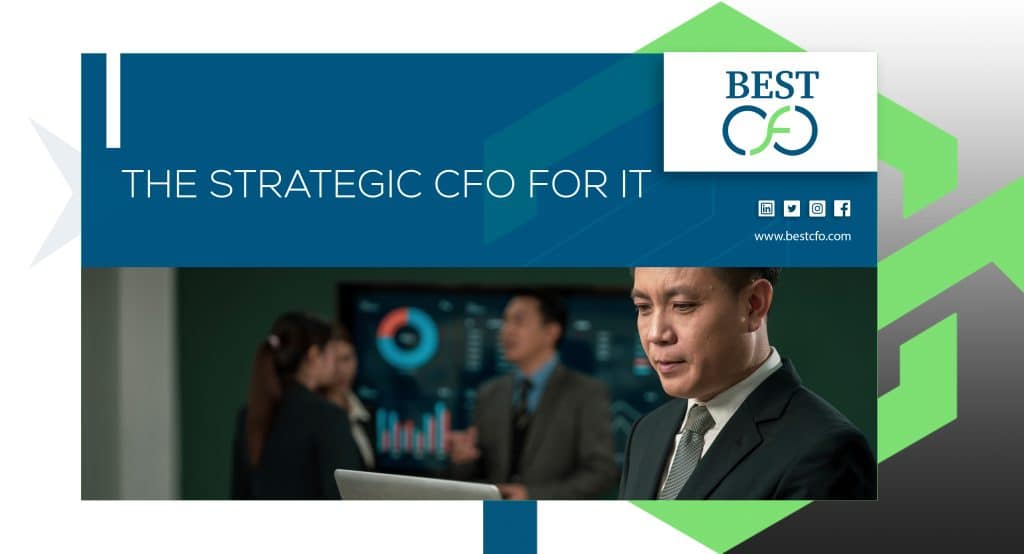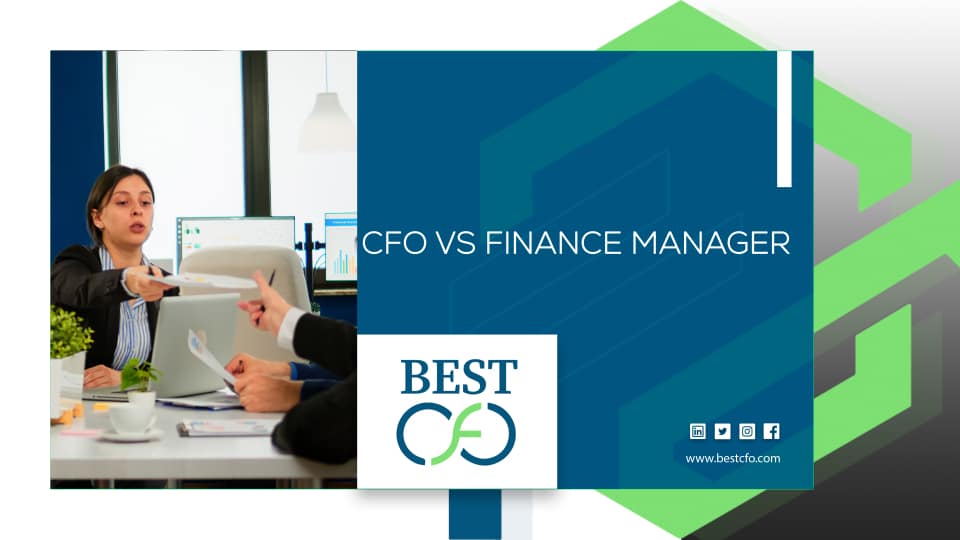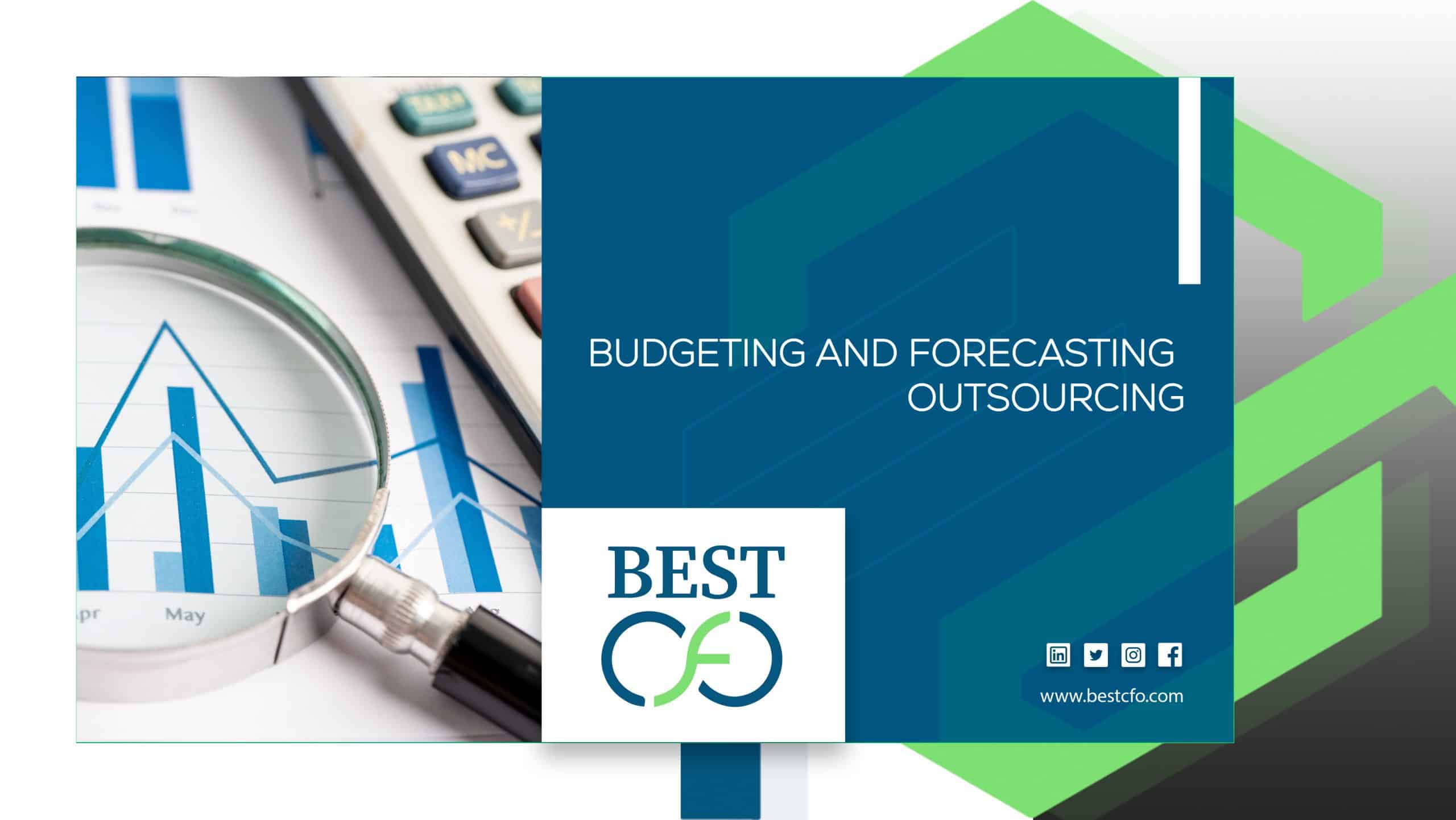
| Getting your Trinity Audio player ready... |
From Finance to Future-Proofing: The Strategic CFO for IT
Suppose a traditional CFO sitting at their desk, surrounded by spreadsheets, buried in quarterly reports, focused on trimming costs, and reviewing last quarter’s numbers. For decades, this was the image of a Chief Financial Officer — the guardian of budgets and the steward of financial reporting.
But today, that picture is outdated. Businesses no longer run on just capital and labor — they run on technology. Cloud computing, artificial intelligence, data analytics, cybersecurity threats, and remote work have completely reshaped the way companies operate. These forces have disrupted the old model, and the CFO role can no longer live in the past.
So here’s the central question: In a world where technology is the primary driver of growth and risk, who is best positioned to ensure these investments are sound, strategic, and future-proof?
The answer is the modern CFO for IT — a strategic leader who goes beyond spreadsheets and actively shapes the company’s technology journey. This blog will explore how the CFO’s role has expanded from managing financial capital to orchestrating technological capital, making them a vital partner in building resilient, innovative businesses.
Part 1: The Catalysts for Change – Why the CFO Must Engage with IT
The Digital Transformation Imperative
Every company is now a tech company. Whether you sell shoes, build cars, or manage healthcare, technology is no longer just a support function — it powers your products, services, and daily operations. The CFO for IT must see technology as central to business value creation, not a side expense.
The Shift from CapEx to OpEx
Remember the old days of buying servers and hardware upfront? That was a big capital expense (CapEx). With the rise of cloud computing, businesses now pay subscription-style fees, turning technology into an ongoing operational expense (OpEx). This change impacts profit and loss statements directly. CFOs must adjust their financial lens and ensure the shift supports both agility and long-term sustainability.
Data as the New Corporate Asset
Money isn’t the only asset that matters. Today, data is the most valuable currency. From customer preferences to supply chain trends, data fuels innovation. And who better than the CFO to manage, value, and monetize this asset? The CFO for IT becomes the natural steward of this new corporate treasure, ensuring data investments generate real returns.
The Rising Tide of Cyber Risk
Cybersecurity is no longer just an IT issue — it’s a financial risk that could threaten the survival of a business. Breaches, ransomware, and data leaks can cost millions. The CFO’s fiduciary duty now includes funding proper defenses and treating cybersecurity as a business continuity investment, not just a technical cost.
The Demand for Real-Time Insights
Quarterly reports used to be enough. Not anymore. Markets move fast, customers expect instant decisions, and competitors don’t wait. Businesses need real-time financial and operational insights. IT builds the systems to deliver this, but the CFO is often the primary consumer of these platforms — and the one who ensures they add measurable value.
Part 2: The Evolving Role: From Controller to Strategic Co-Pilot
The modern CFO isn’t just a controller of finances; they are a strategic co-pilot steering the business into the future. Their role now blends finance, technology, and strategy in new ways.
The Translator (Bridging the CIO-CFO Gap)
Think of the CFO as a translator. On one hand, they help the CIO understand business priorities, growth goals, and risk appetite in financial terms. On the other hand, they explain IT’s technical language — APIs, project timelines, cloud solutions — to the board and CEO in terms of outcomes, ROI, and business value. Without this bridge, misalignment can derail innovation.
The Valuator (Moving Beyond ROI)
Traditional ROI calculations don’t tell the full story. Modern CFOs must apply broader evaluation methods like Value Engineering. This means asking: Does this project give us a competitive edge? Will it improve customer experience? Does it boost employee productivity? Even investments in foundational tools like data lakes or integration platforms deserve funding if they unlock future innovation.
The Investor (Managing a Portfolio of Tech Bets)
Instead of treating IT as a single line item, the CFO for IT manages it like a portfolio of investments. Some are high-risk bets on innovation, while others are safer, steady projects that keep operations running. The CFO’s job is to balance these, double down on winners, and cut losses quickly on failing projects.
The Risk Orchestrator (Quantifying Digital Risk)
New technologies bring opportunities, but also risks. Partnering with the CISO, the CFO helps model the financial impact of events like ransomware or AI-driven disruptions. They ensure investments in disaster recovery and resilience are treated like business insurance. This shifts the mindset from “IT costs” to “business continuity investments.”

Part 3: The Strategic Playbook: How the Modern CFO Drives IT Value
This is where strategy becomes action. Here’s how CFOs can lead their organizations into the future.
Master the Language of Technology
You don’t need to be a coder to succeed as a CFO for IT. But you do need to understand key concepts like SaaS vs. on-premise, APIs, scalability, and total cost of ownership. This knowledge builds credibility with IT leaders and allows the CFO to participate in meaningful, strategic conversations.
Implement Technology Business Management (TBM)
TBM is a framework that gives CFOs transparency into IT spending. For example, instead of just approving “IT costs,” TBM helps break it down into insights like cost per HR application user or cost per gigabyte of storage. By championing TBM, CFOs can turn IT from a “black box” into a measurable business portfolio.
Champion Agile Funding Models
Annual budgets don’t fit the pace of modern technology. The solution? Rolling forecasts, product-based funding, and setting aside a percentage of funds as an “innovation pool” for emerging opportunities. This agile approach lets CFOs respond quickly to new market shifts without waiting for the next fiscal year.
Forge the C-Suite Alliance: The CFO-CIO Power Partnership
This isn’t about finance taking over IT — it’s about partnership. Regular, agenda-driven meetings between CFO and CIO create alignment between technology roadmaps and financial strategies. Together, they can present a united vision to the CEO and board, showing how investments in IT fuel long-term growth.
Demand and Define “Value Realization”
Too often, success is measured by whether a project came in under budget. But the real question is: Did it deliver business value? Strategic CFOs set up post-implementation reviews six to twelve months after launch to measure outcomes like increased revenue, reduced manual work, or improved system uptime. This keeps technology accountable to the promises made.
Part 4: Challenges and Pitfalls on the Road to Strategic Partnership
Of course, becoming a CFO for IT isn’t without obstacles.
- Cultural Resistance: Many organizations still have an “us vs. them” mindset between finance and IT. Breaking down silos takes patience and leadership.
- Skills Gap: Finance teams often need to build new skills in data analytics and digital literacy to fully support IT initiatives.
- Data Silos: Without a single source of truth, it’s hard to align financial and operational insights. Integration is key.
- Short-Termism: Shareholders and boards may push for quick financial results, but technology investments often take years to pay off. CFOs must be the voice advocating for long-term value creation.
Conclusion
The role of the CFO has transformed. No longer just the keeper of financial scorecards, today’s CFO is a strategic partner in IT, helping the business invest wisely, manage risks, and unlock long-term value from technology. From real-time insights to cybersecurity resilience, the modern CFO for IT is shaping the future of business.
At BestCFO, we understand this evolution and help organizations embrace it. By partnering with us, your finance and IT strategies won’t just align — they’ll future-proof your business.
FAQs
1: What does a CFO for IT actually do?
A CFO for IT ensures that technology investments align with financial goals, manage risks, and deliver measurable business value.
2: Why should CFOs get involved in IT decisions?
Because technology impacts revenue, expenses, risk, and long-term strategy — all areas where the CFO has direct responsibility.
3: How does the CFO-CIO partnership benefit a company?
It creates alignment between financial planning and technology roadmaps, ensuring resources are used effectively and innovations drive real growth.
4: What skills does a CFO need to work closely with IT?
Basic knowledge of technology concepts, strong financial acumen, and the ability to translate between business outcomes and technical solutions.
5: How can CFOs measure the value of IT projects?
By moving beyond budget tracking and measuring outcomes like customer satisfaction, productivity gains, or increased sales.
6: What challenges do CFOs face when engaging with IT?
Cultural barriers, lack of data integration, short-term financial pressures, and the need for new digital skills.
7: How can BestCFO help companies with this transformation?
BestCFO provides expertise in aligning financial and IT strategies, helping businesses manage risks, fund innovation, and maximize the return on technology investments.
Previous Post
CFO vs Finance Manager: Choosing The Right One For You
Post a comment Cancel reply
Related Posts
CFO vs Finance Manager: Choosing The Right One For You
CFO vs Finance Manager: Choosing The Right One For You The finance world can be…
When Should You Outsource My CFO? – The Guide
When Should You Outsource My CFO? – The Guide Every business, no matter how small…
Top 5 Reasons Why You Should Outsource HR
Top 5 Reasons Why You Should Outsource HR Outsourcing is gaining popularity among businesses looking…
Is Budgeting and Forecasting Outsourcing Beneficial?
Is Budgeting and Forecasting Outsourcing Beneficial? If you’re a small business owner or a large…
 Demos
Demos  Colors
Colors  Docs
Docs  Support
Support 









